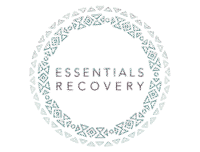Substance abuse is a widespread and serious concern that affects individuals, families, and communities. It can start subtly and progress quickly, making it crucial to understand the warning signs and know how to seek help when needed. Early recognition and intervention can make all the difference in the outcome of someone’s journey toward recovery. This post will explore how to identify substance abuse, the common signs and behaviors to look out for, and the resources available for those who need help.
What Is Substance Abuse?
Substance abuse refers to the harmful or hazardous use of psychoactive substances, including alcohol and illicit drugs. This behavior can lead to addiction, a chronic brain disorder characterized by the compulsive need to seek and use substances despite negative consequences. Substance abuse can interfere with daily responsibilities, damage relationships, and lead to long-term health issues. Understanding what substance abuse entails is the first step in addressing the issue effectively.
Commonly Abused Substances
Many substances have the potential to be misused. Some of the most commonly abused substances include alcohol, prescription medications like opioids and benzodiazepines, and illegal drugs such as cocaine, heroin, and methamphetamine. Other substances include marijuana, inhalants, and synthetic drugs. The impact of each substance varies, but all have the potential to cause addiction, health problems, and even fatal overdoses.
Physical and Behavioral Signs of Substance Abuse
Recognizing the signs of substance abuse early can prevent more serious consequences down the line. Physical signs might include bloodshot eyes, sudden weight changes, lack of personal hygiene, frequent nosebleeds, or marks on the arms from intravenous drug use. Behavioral signs often include mood swings, withdrawal from family and friends, sudden changes in work or academic performance, and financial problems due to spending on substances. Individuals may also start lying, stealing, or acting out of character as the addiction progresses.
Psychological and Emotional Warning Signs
Substance abuse also affects a person’s emotional and mental well-being. You might notice increased anxiety, depression, paranoia, or a general lack of motivation. Those struggling may express feelings of hopelessness, worthlessness, or seem unusually secretive. They may also show a lack of interest in activities they once enjoyed. These psychological symptoms can be particularly dangerous as they increase the risk of self-harm or suicide.
Risk Factors and Causes
There is no single cause of substance abuse. Instead, it often results from a combination of genetic, environmental, and psychological factors. Family history of addiction, early exposure to drugs, peer pressure, mental health disorders, trauma, and stress all contribute to the risk. Understanding these risk factors can help identify those who may be more vulnerable and guide preventive measures or early intervention.
The Importance of Early Detection
Catching substance abuse in its early stages significantly increases the chances of successful treatment. Many people are reluctant to seek help due to denial or fear of stigma. Family members, friends, and colleagues can play a vital role in recognizing the signs and offering support. Approaching the issue with compassion and concern, rather than judgment, can encourage someone to take the first steps toward recovery.
Talking to a Loved One About Substance Use
Having a conversation with someone about their substance use can be difficult, but it’s often necessary. Choose a calm, private time to talk and express your concerns honestly. Use “I” statements to avoid sounding accusatory, such as “I’ve noticed that you’ve been missing a lot of work lately and I’m worried about you.” Listen without interrupting and offer support. While they may not be ready to seek help right away, opening the door for communication can have a lasting impact.
When and Where to Seek Professional Help
If substance abuse is affecting someone’s life, seeking professional help is essential. Start by speaking with a healthcare provider or addiction specialist who can assess the situation and recommend treatment options. Detox programs, residential treatment centers, outpatient therapy, and support groups are all available depending on the severity of the addiction. Many facilities offer assessments to help determine the best course of action. It’s also helpful to involve family and support systems in the process when appropriate.
The Role of Support Groups and Therapy
Support groups like Alcoholics Anonymous or Narcotics Anonymous offer a safe, structured environment for individuals in recovery to share experiences and gain encouragement. These groups operate on the principle of peer support and can be incredibly beneficial for maintaining sobriety. In addition to support groups, therapy—such as cognitive behavioral therapy or motivational interviewing—can help individuals understand the root causes of their addiction and develop strategies for managing cravings and triggers.
Building a Recovery Plan
Once someone decides to get help, creating a solid recovery plan is key to long-term success. A good plan includes medical treatment, counseling, support groups, and lifestyle changes. Setting short- and long-term goals can provide structure and motivation. Recovery is not just about abstaining from substance use; it’s about rebuilding a healthy, meaningful life. A plan tailored to the individual’s needs increases the chance of lasting sobriety.
Addressing Co-occurring Disorders
Many people struggling with substance abuse also face mental health challenges such as depression, anxiety, bipolar disorder, or PTSD. These co-occurring disorders require integrated treatment that addresses both conditions at the same time. Treating one without the other can lead to relapse. Professional programs that specialize in dual diagnosis can provide comprehensive care and improve overall outcomes.
The Importance of Ongoing Support
Recovery doesn’t end after detox or rehab. Maintaining sobriety requires ongoing effort, accountability, and support. Regular check-ins with a counselor, participation in support groups, and involvement in a positive community can help reinforce recovery goals. Many people also benefit from lifestyle changes such as exercise, improved nutrition, mindfulness practices, and reconnecting with loved ones. Staying committed to these habits helps build resilience and prevents relapse.
Helping Teens and Young Adults
Substance abuse among young people is particularly concerning due to its potential to derail development and lead to long-term issues. Teens may be more susceptible to peer pressure and less likely to understand the consequences of substance use. Parents, teachers, and mentors should be alert to behavioral changes and open to conversations. School counselors and youth treatment programs can provide age-appropriate support and guidance.
The Role of Community Resources
Communities play a vital role in addressing substance abuse by offering education, outreach, and support services. Local health departments, non-profits, and faith-based organizations often provide resources such as hotlines, counseling, and recovery events. These programs help reduce stigma, increase awareness, and provide a safety net for those seeking help. Accessible community support can make a significant difference in someone’s path to recovery.
Overcoming Barriers to Treatment
Despite the availability of help, many individuals don’t seek treatment due to fear, shame, or lack of access. It’s important to address these barriers through education and compassion. Encouraging open conversations about addiction, offering judgment-free support, and improving access to healthcare and financial assistance can help more people get the care they need. Breaking down these barriers helps build a culture of recovery and hope.
Conclusion
Substance abuse is a serious issue, but it is one that can be addressed with the right knowledge, support, and resources. By recognizing the warning signs, understanding the underlying causes, and seeking professional help, individuals and their loved ones can take proactive steps toward recovery. Recovery is a journey that requires strength, patience, and support—but it is always possible. Whether you’re concerned about yourself or someone you love, don’t wait to act. Reaching out can be the first step to a healthier, more fulfilling life. Call us today at 855-509-1697.



